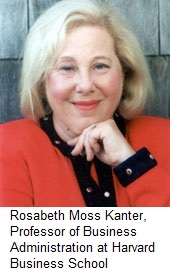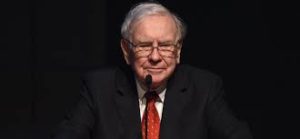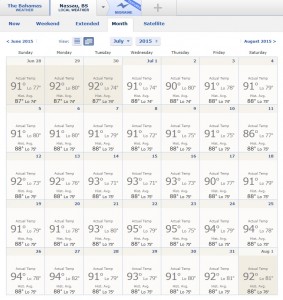Go Lean Commentary
“Never bet against America” – Warren Buffet, American Billionaire and Industrialist; see Appendix A below.
While it may not appear be a competition, in truth, there are competitive forces at work for foreign communities in the shadows of the great American eco-system. Yes, the Caribbean member-states have been parasites of the American “hegemony”.
Hegemony = the political, economic, or military predominance or control of one state over others. – Oxford University Press
Consider these facts, from a previous Go Lean commentary:
State of the Union: Self-Interest of ‘Americana’
The United States of America is the “800-pound gorilla” or the BIG DOG of the Western Hemisphere; (in fact, the US is the last Super Power in the world).
- There are two US Territories in our Caribbean: Puerto Rico and the Virgin Islands.
- The US is the Number 1 Single Marketeconomy in the world
- The US is the Number 1 military (in terms of troop size, armament and defense spending).
- The US is also the Number 1 destination for the Caribbean Diaspora.
We cannot avoid the influence of the American system – Americana – on our Caribbean region… “Resistance is futile!”
No society can survive with population losses; yet the status quo for the Caribbean is that we lose large fractions of our population to foreign shores, in the US. This was related in a previous blog-commentary in this series, Part 1-of-6:
- We lose 50 percent of our population in some dependent territories – think Puerto Rico, US Virgin Islands, etc.
- We lose 70 percent of our college-educated professionals
So we are losing…
We need a turn-around; we need to win.
Is it possible to compete, to win, against the US?
(Or are we condemned to watching our best-and-brightest leave home and then we have to nation-build with the rest?)
Yes, we can win … with a new attitude – or community ethos. We can succeed; we can Do Well and Do Good – see this discussion elaborated on in the White Paper Summary in Appendix B below. We must …
Refuse to lose – a commitment by a group or society to the values of quality, success and winning.
If we adopt this attitude then we will believe that we can compete with the US; we can even be better. (America has active societal defects – i.e. institutional racism and Crony-Capitalism – that need not be an issue in our Caribbean homeland).
This is a mission of the roadmap embedded in the 2013 book Go Lean…Caribbean, to be a better homeland to live, work and play. This commentary is a continuation of this series on the Refuse to Lose ethos; this is Part 4-of-6. The full series is cataloged as follows:
- Refuse to Lose: Lesson from Sports
- Refuse to Lose: Remediating ‘Columbus Day’
- Refuse to Lose: Introducing Formal Reconciliations
- Refuse to Lose: Despite American Expansionism
- Refuse to Lose: Canada’s Model of Ascent
- Refuse to Lose: Direct Foreign Investors Wind-Downs
It is the assertion of this commentary that the Caribbean can win, despite American Expansionism – they inserted themselves in our affairs on multiple occasions: think Cuba and Haiti. The American hegemony shows their military might – the world’s strongest – plus these three areas:
- Trade – America insists on dominating trade for the region; they want to export; even if it means importing the finished goods, then re-exporting it. (Think of how often we buy Japanese consumer products from America, rather than from Japan directly).
- Currency – Many Caribbean territories use the US Dollar as their primary currency or co-currency; i.e. Turks & Caicos, British Virgin Islands, Curacao.
- Media – American movies, television, music and other media products are ubiquitous even in the Caribbean region.
How can we win, despite this dominance? We can Do Well and Do Good – see the White Paper Summary in Appendix B below. Also, see the answers-solutions here, as addressed in previous commentaries:
Trade
America is willing to consume; so we should produce more. American manufacturers look for cheaper places to re-locate their plants.
Senate bill targets companies that move overseas – July 31, 2014
The Caribbean is the “best address in the world” and provides the best of certain products … and is the best at performing certain services. We can compete! There should not be the need to “run for the shadows”. The world should be soliciting us, not us begging for the “crumbs following from the table” of the world economy.
Currency
The Caribbean member-states are urged to adopt e-Payment schemes as soon as possible so as to leverage the money-multiplier principle for our economic benefit, not America’s.
Changing the Culture & Currency of Commerce – May 27, 2019
We want to change Caribbean commerce. We want to make it Bigger, Better and Faster.
- Bigger – Yes, we want to go from local markets to a regional Single Market. Imagine all 30 Caribbean member-states with 42 million people and the potential to produce $800 Billion in GDP.
- Better – Free Market would be better for Caribbean economics as opposed to the restricted controls of extreme socialism; think Cuba. Yet, many other member-states have policies and practices that are socialistic in their priorities; i.e. Antigua & Barbuda does NOT allow for private property ownership on Barbuda. (This smells like communism).
- Faster – We want more and more electronic commerce options. This means a comprehensive Marketplace & Social Media (www.myCaribbean.gov) plus the delivery-logistics options of the optimized Caribbean Postal Union (CPU), a subset of the Caribbean Union Trade Federation (CU).
Media
Internet & Communications Technologies (ICT) allows equalization of Big Countries versus small countries. This equalizer effect will level the competition versus America; we can easily launch our own regional network.
Network Mandates for a New Caribbean – September 26, 2018
Change has come to the world and to the Caribbean region. The advent of Internet Communications Technologies (ICT) now has voluminous options for media to be delivered without the large footprint … or investment. Now anyone can easily publish VIDEO’s and Music files to the internet and sell them to the public – models abounds: i.e. pay-per-play, or subscription.
The failing-losing Caribbean member-states need societal progress; so we must adopt the new attitudes that reflect a Refuse to Lose mentality.
‘Yes We Can’ …
Refusing to Lose is a necessary new ethos for the Caribbean Way Forward . We must start winning, after so many years of losing.
We urge every Caribbean stakeholder to Refuse to Lose; this is how we will make our homeland a better place to live, work and play. 🙂
About the Book
The book Go Lean…Caribbean serves as a roadmap for the introduction and implementation of the technocratic Caribbean Union Trade Federation (CU), for the elevation of Caribbean society – for all member-states. This CU/Go Lean roadmap has these 3 prime directives:
- Optimization of the economic engines in order to grow the regional economy to $800 Billion and create 2.2 million new jobs.
- Establishment of a security apparatus to ensure public safety and protect the resultant economic engines.
- Improve Caribbean governance to support these engines, including a separation-of-powers between the member-states and CU federal agencies.
The Go Lean book provides 370-pages of turn-by-turn instructions on “how” to adopt new community ethos, plus the strategies, tactics, implementations and advocacies to execute so as to reboot, reform and transform the societal engines of Caribbean society.
Download the free e-Book of Go Lean … Caribbean – now!
Who We Are
The movement behind the Go Lean book – a non-partisan, apolitical, religiously-neutral Community Development Foundation chartered for the purpose of empowering and re-booting economic engines – stresses that reforming and transforming the Caribbean societal engines must be a regional pursuit. This was an early motivation for the roadmap, as pronounced in the opening Declaration of Interdependence (Pages 12 – 14):
xi. Whereas all men are entitled to the benefits of good governance in a free society, “new guards” must be enacted to dissuade the emergence of incompetence, corruption, nepotism and cronyism at the peril of the people’s best interest. The Federation must guarantee the executions of a social contract between government and the governed.
xvi. Whereas security of our homeland is inextricably linked to prosperity of the homeland, the economic and security interest of the region needs to be aligned under the same governance. Since economic crimes … can imperil the functioning of the wheels of commerce for all the citizenry, the accedence of this Federation must equip the security apparatus with the tools and techniques for predictive and proactive interdictions.
xxiv. Whereas a free market economy can be induced and spurred for continuous progress, the Federation must install the controls to better manage aspects of the economy: jobs, inflation, savings rate, investments and other economic principles. Thereby attracting direct foreign investment because of the stability and vibrancy of our economy.
xxvii. Whereas the region has endured a spectator status during the Industrial Revolution, we cannot stand on the sidelines of this new economy, the Information Revolution. Rather, the Federation must embrace all the tenets of Internet Communications Technology (ICT) to serve as an equalizing element in competition with the rest of the world. The Federation must bridge the digital divide and promote the community ethos that research/development is valuable and must be promoted and incentivized for adoption.
Sign the petition to lean-in for this roadmap for the Caribbean Union Trade Federation.
————–
Appendix A – Buffett: Never bet against America
By: Alex Crippen
A significant part of Warren Buffett’s enormous financial success is built on the money he’s put behind his unwavering belief that America’s brand of capitalism, from the earliest days of its founding, has fueled ever-growing prosperity for its businesses and its people, and that it will continue to do so far into the future.
[See this Timeline of his pronouncements]
-
- VIDEO – 1997: Why America will remain competitive – https://buffett.cnbc.com/video/1997/05/05/has-americas-industrial-age-passed.html
Posted May 1997 – At Berkshire’s Hathaway’s 1997 shareholder meeting, Buffett explains why he’s not worried the “age of classical industrial America has passed.”
-
- 2004: Despite challenges, optimism for America’s future
Despite a war in Iraq, increasing consumer debt, and declining job growth, Buffett remains positive, pointing out that the country has always recovered in the past, even when facing “an equally impressive number of negative factors.”
-
- 2004: “A country characterized by lots of immigration”
In response to a question about U.S. immigration law, Buffett talks about how he suspects America’s “incredible record” of economic growth over the decades has been helped by the people who came to the United States from other countries.
-
- 2009: Seeing past the “Great Recession”
Just months after a devastating credit crisis helps plunge the U.S. into its worst economic crisis since the 1930s, Buffett still believes “the opportunities will win in the end.”
-
- 2013: Born in the USA
At the 2013 Berkshire meeting, Buffett acknowledges that he’s benefited from luck, getting a “huge, huge, huge advantage” just from having been born in the United States. And he, says, he’s not the only lucky one.
-
- 2016: “This country works … it’s working now”
During a presidential campaign in which Donald Trump was promising to “Make America Great Again,” Buffett, a backer of Hillary Clinton’s candidacy, tells Becky Quick on CNBC’s “Squawk Box” why he takes issue with Trump’s premise.
-
- 2017: America will do fine no matter who is in the White House
On the eve of Donald Trump’s inauguration, after the Dow had rallied 7.6 percent since Election Day, Buffett is asked how he thinks the new president will affect the stock market in the months ahead.
Source: Posted July 2 2018; retrieved October 16, 2019 from: https://buffett.cnbc.com/2018/07/02/buffett-on-america.html
————–
Appendix B – How to Do Well and Do Good
Sub-title: The key to achieving both of those goals together? Integrate societal benefits with company strategy.
By: Rosabeth Moss Kanter
Can companies do well by doing good? That question is asked frequently – but beware of false choices when considering it. In business, there is not a strict dichotomy between doing well and doing good; it is not an either-or proposition. Instead, social good and profitability are among the criteria by which companies make choices. In reality, any company is better off creating both bottom-line and societal benefits – and creating synergies between them.
That does not mean executives should lose sight of the goals and mission of the business, however. There is no reason certain kinds of good works – say, merely giving away money to areas unrelated to the business – should provide particular strategic advantage for a company. But if a company can integrate the benefits that it offers society more closely into its existing business, that integration can be very sensible and beneficial for the business. For example, people within the organization may recognize internal capabilities which they can build and develop to address a problem in society while simultaneously enlarging the company’s market.
As I describe in my book Supercorp, some smart companies are finding that including a focus on benefiting society in their mission can help yield competitive advantage. These companies, which are in the vanguard of creating a new business model, have discovered that a commitment to tackling societal problems can be one aspect of creating a corporate culture that leads to high performance and profits. (However, it is important to note that no company exemplifies this aspirational approach to management completely; all companies have flaws, and none live up to their ideals all of the time.)
There are a number of reasons why incorporating social good into strategy can help a company’s long-term performance. For one thing, it can help strengthen a company in the eyes of a number of important constituencies: its customer base, its employee base and the general public. In particular, a mission that includes serving society can help motivate employees – especially a younger generation of employees who seek meaning in work.
 ——
——
About the Author
Rosabeth Moss Kanter is the Ernest L. Arbuckle Professor of Business Administration at Harvard Business School. She is the author of numerous books, including Supercorp: How Vanguard Companies Create Innovation, Profits, Growth and Social Good (New York: Crown Business, 2009).
——-
Download/Buy the full Report at: https://sloanreview.mit.edu/article/how-to-do-well-and-do-good/ – Posted September 1, 2010; retrieved October 17, 2019.


















